DigitalFUTURES Young Award 2022
This award is given to an individual or group of young scholars/practitioners/educators in recognition of their exceptional contributions to the field of digital design and fabrication in their early careers.
Hua Chai
Hua Chai is a Postdoctoral researcher at the College of Architecture and Urban Planning (CAUP) of Tongji University. His research focuses on the computational design and robotic fabrication of timber structures, with a special attention on advanced robotic production technologies for complex timber building systems. He received his Ph.D. from Tongji University in 2022. He visited the Institute for Computational Design and Construction (ICD) at the University of Stuttgart for one year as guest researcher in 2020. His research has been widely published in journals and international conferences including Automation in Construction, ACADIA, Rob|Arch and Fabricate. He is also a Young CAADRIA Award recipient in 2015. He has also been involved in leading several international workshops including DigitalFUTURES (from 2014 to 2022) and ACADIA 2020.
Yasaman Tahouni
Yasaman Tahouni is a computational designer, maker, and Ph.D. candidate at the Institute for Computational Design and Construction (ICD), University of Stuttgart. Her research interest lies at the intersection of computation and materiality, and she seeks novel ways to bridge the two to create programmable, adaptive, and performative shape-changing structures. Her current research is focused on biobased and bioinspired 4D printing, for which she develops computational fabrication processes that merge design, additive manufacturing, and biobased “smart” material systems. Yasaman holds a dual M.Sc. degree in Design and Computation (SMArchS) and Electrical Engineering and Computer Science from the Massachusetts Institute of Technology (MIT), and a bachelor’s degree in Architecture from the University of Tehran. She has been a researcher and an educator at MIT and ICD, and her work has been published in various scientific journals, patents, and academic conferences.
Vishu is a Lead Designer at Zaha Hadid Architects, Computation and
Design Research group (ZHA CODE) in London. He leads the design
research with computational geometries with specific interest on
structure and fabrication aware tectonics which incorporate digital formfinding,
topology optimisation, statistical learning etc. He also leads the
development of a software agnostic computational framework to
explore the above. Since joining Zaha Hadid Architects in 2013, he has
been involved in several design competitions and commissions ranging
from research prototypes, products, galleries, stadiums, metro stations, residential buildings and masterplans.
DigitalFUTURES Young Award 2021
This award is given to an individual or group of young scholars/practitioners/educators in recognition of their exceptional contributions to the field of digital design and fabrication in their early careers.
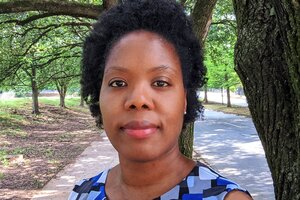
A design scholar, architect, artist, and founding Director of the Situated Computation + Design Lab at the University of Florida. Her research examines traditional and automated making cultures and practices, interdisciplinary creativity, and their intersections with society. Dr. Noel’s work in design and computation has been supported by the Graham Foundation for Advanced Studies in the Fine Arts, the Mozilla Foundation, and ideas2innovation (i2i), among others. Her TEDx Talk is titled, “The Power of Making: Craft, Computation, and Carnival.” Dr. Noel holds a Ph.D. from Penn State University, a Master of Science from MIT, a BArch. from Howard University, and a Diploma in Civil Engineering from Trinidad & Tobago. She has been a researcher and educator at Georgia Tech., Penn State, the Singapore University of Technology & Design, and MIT, and has practiced as an architect in the US, India, and Trinidad & Tobago.
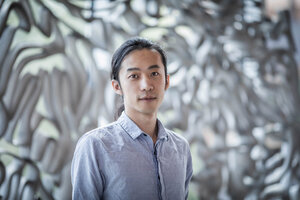
An architect, designer, and computer scientist based in Zurich, Switzerland. He is a researcher at ETH Zurich, where he focuses on optimization-based methods for computational robotic fabrication. His featured work “Stylized Robotic Sculpting” developed a novel design and robotic fabrication system for carving clay sculptures with robots. Zhao received a Master of Architecture degree and a Master of Engineering (Structural) degree from Massachusetts Institute of Technology (MIT) in 2017. He obtained his PhD at ETH Zurich, where he conducted cross-discipline research shared with Gramazio Kohler Research (ETHZ), Computational Robotics Lab (ETHZ), and Disney Research Zurich. Zhao seeks to bridge fields of the design, engineering, and computational fabrication through cross-disciplinary collaborations. His work has featured in various awards and patents across disciplines including architecture, landscape, and computational design.
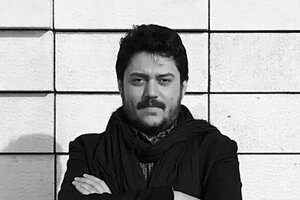
A practicing architect, researcher, and educator specializing in computational design and architectural robotics. He holds a doctorate from TU Delft, where he has been a senior researcher and the manager at the robotic building lab of Hyperbody Group in AE+T at BK-City. He is the founder of SETUParchitecture, an award-winning studio that aims at adapting digital design-to-production technologies to geo-cultural specificities. He has led and taught numerous studios at TU Delft and Dessau Institute of Architecture (DIA) at Bauhaus, where he has been the director of DARS.hub [Design, Architectural Robotics & Systems], which focuses on delivering interdisciplinary projects such as Bioplastic Robotic-3D-Printing and Adaptive City Car sponsored by Audi.
Dr. Mostafavi’s projects have been featured at international exhibitions, such as V2-gallery, NAi-Rotterdam, and Paris’s Centre-Pompidou. He has received several awards, such as Architizer A+ Awards 2020 and 2A Continental Euro-Asia Award 2018 in IAAC Barcelona for Softstone Building. He is the author of the book titled Hybrid Intelligence in Architectural Robotic Materialization (HI-ARM), which centers on integrated design computation to robotic production of hybrid material systems using multi-mode production methods. Lectured and published internationally, he has been a scientific committee member of various journals and conferences.
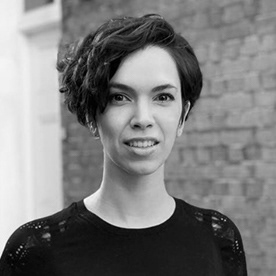
An interaction and spatial designer. My work sits at the intersection between humans and environments, physical and digital, sensuality and systems, textures and motions. The two intertwined pillars of my work are interaction and spatial design. On one hand, I explore interactions between people and environments through the design of physical and virtual immersive experiences. My latest piece, (un)Balance, was exhibited at Ars Electronica festival, Austria. On the other, I design spatial experiences for large spaces such as workplaces and hospitals. Through combinations of interiors, art installations and/or environment graphics, I infuse spaces with unique spatial identities while enhancing users experiences. My latest role was lead designer at Acrylicize, London based art & design studio. Motion and movement play key roles throughout my work. Wether in the form of motion graphics, kinetics or programmed light installations, they enable me to induce circulations, translate ideas and spark emotional responses. Today, I am looking at further layering my practices to envision new everyday interactions with emotional health and social equity in mind.
DigitalFUTURES Young Award 2020
This award is given to an individual or group of young scholars/practitioners/educators in recognition of their exceptional contributions to the field of digital design and fabrication in their early careers.
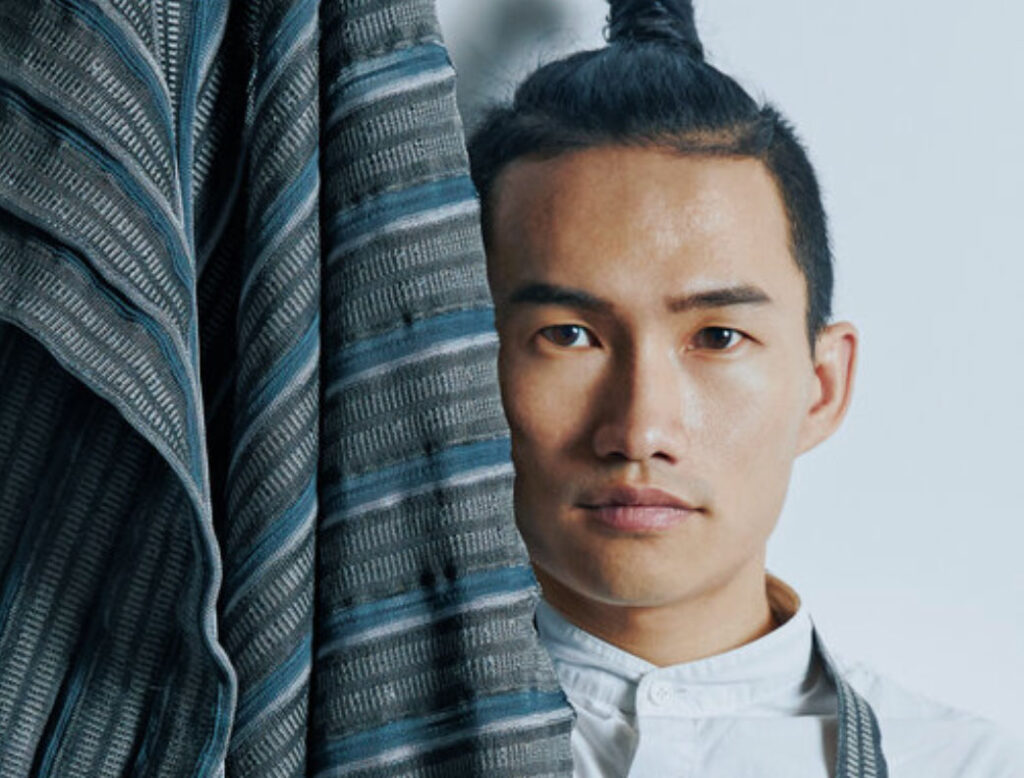
Dr. Jifei Ou isFounder/CEO at OPT Industries, Inc. and Research Affiliate at MIT Media Lab.
Jifei Ou is a designer, researcher and entrepreneur based in Cambridge, MA, USA. He founded OPT Industries, which builds manufacturing processes for mass customization of functional materials. He is also a researcher at the MIT Media Lab, where he focuses on designing and fabricating transformable materials across scales (from μm to m). Jifei was born and raised in southwest China and has brought his design practice and scientific research to Asia, Europe and the U.S. His works have been published in academic conferences such as UIST (2013, 2016 & 2017), TEI (2014 & 2016) and CHI (2015 & 2016); awarded by design competitions such as FastCo’s Innovation By Design Award (2017, 2018), A’ Design Award (2016, 2017), IXDA award (2016), etc. He is also deeply involved in the manufacturing community in Shenzhen in order to facilitate the rapid scaling of his research.
Jifei holds a PhD and an MS from the MIT Media Lab, and a Diplom in Design from the Offenbach University of Art and Design in Germany.
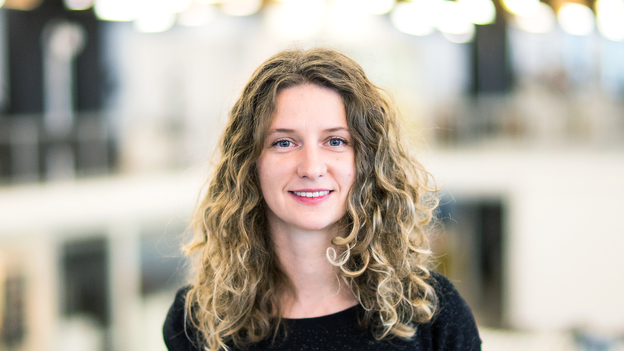
A post-doctoral researcher at the Block Research Group (BRG) at the Institute of Technology in Architecture at ETH Zurich, involved in the NCCR Digital Fabrication. Popescu is an architect with a strong interest in innovative ways of approaching the fabrication process and use of materials. She studied architecture at the Delft University of Technology, before obtaining her PhD at the BRG in 2019. Her research focuses on the development of KnitCrete, a novel, material-saving, labourreducing, cost-effective formwork system for casting of doubly-curved geometries in concrete using 3D knitting. She is the main author of the award-winning KnitCandela shell and has been included in the MIT Technology Review Innovator Under 35 list in 2019.

An architect, researcher, and artist working in the field of computational design and digital fabrication. Her work lies at the intersection of architecture and robotics, producing spaces and robotic systems that can construct themselves and change in real-time. Such architectural productions include the development of hardware and software solutions, as well as complementing architectural and material systems in order to offer new design spaces.
Maria’s practice focuses on designing machines that make architecture: a practice that she broadly describes as Designing [with] Machines (D[w]M). D[w]M aims to investigate and establish design methodologies that consider robotic hardware development as part of the overall design process and its output. Through this work, Maria argues for a design practice that moves beyond the design of objects towards the design of technologies and processes that enable new ways of both creating and interacting with architectural spaces.
